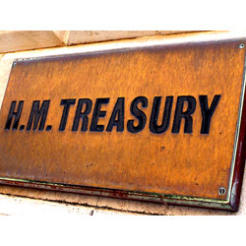Ideas put forward by government to tackle business rates avoidance would harm charities and should not be taken forward, according to a consultation response submitted today by four charity infrastructure bodies.
In December last year the Treasury and the Department for Communities and Local Government consulted on whether it should take more steps to tackle business rate avoidance. Ideas put forward for discussion included changing legislation, changing the administrative regime, and giving specific anti-avoidance powers to local authorities.
However in a joint response NCVO, the Charity Finance Group, the Institute of Fundraising and the Charity Retail Association said they were concerned that potential changes could reduce charities’ abilities to claim business rate relief.
The consultation comes in the wake of several court cases involving charities, in which they were forced to repay millions of pounds in incorrectly claimed rates relief, and were accused of being involved in tax avoidance schemes.
Several other charities are under investigation by the Charity Commission over suspicion they may have been involved in business rates avoidance.
Business rates are the most valuable tax relief to the charity sector, and are worth £1.64bn a year.
The bodies said in a joint response document that they favoured clearer advice and guidance, rather than a change in the law.
They called for “regularly updated and simple to understand guidance from HMRC and the Charity Commission”, including information collected from recent cases. They also said that local authorities were not sufficiently good judges of whether enough charitable activity was taking place to warrant continued rate relief, and that this should be for the courts to decide.
“This is particularly important given recent changes to business rate relief through the business rate retention scheme, which gives local authorities an incentive to reduce the amount claimed through business rates,” the response document said.
“Most charities do not have the resources to be able to challenge decisions if local authorities decide that a charity has failed to meet the ‘reasonably conclude’ test. This could lead to charities carrying out legitimate activities being deprived of their rate relief and without the means to challenge decisions by local authorities.
“A sweeping anti-avoidance rule would likely lead to local authorities taking a risk adverse attitude which could reduce innovation in the sector, having a negative impact on communities.”
The response said the existing law on business rates was very vague and was constantly changing due to case law.
“We recommend that the government takes a positive approach through better communication with charities about the rules of business rate relief working with the Charity Commission and membership bodies,” the response said.
“We also recommend that HMRC works with the Charity Commission to set up a confidential line for charities to report individuals they suspect of seeking to use charitable vehicles to avoid tax.”
The response also called for more research to quantify the scale of rate relief abuse using charities.









